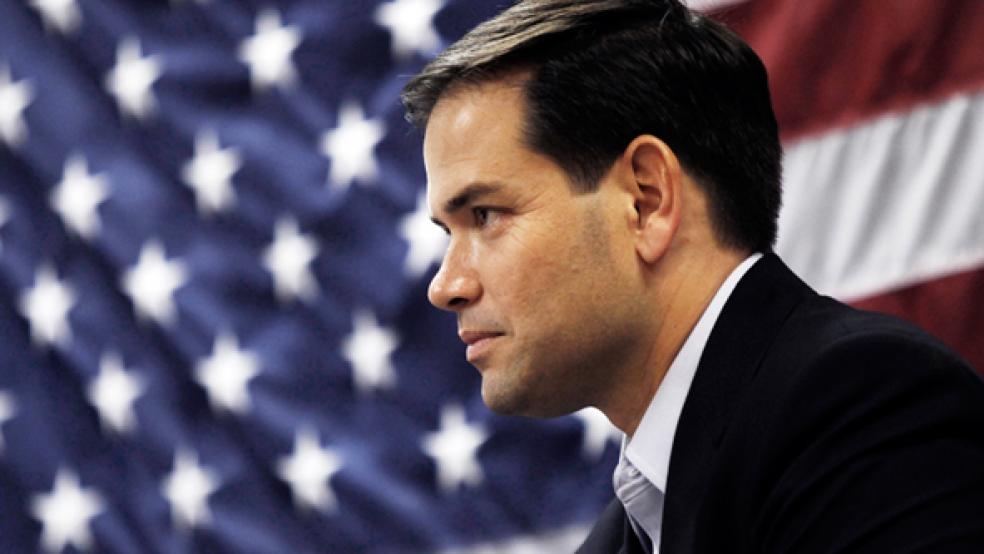Sen. Marco Rubio (R-Fla.) took another step onto the national stage Wednesday with a foreign policy speech that positioned him squarely in the middle between a dying breed of GOP moderates and his partisan brethren who have condemned President Obama as an international weakling. “The easiest thing for me to do here today is to give a speech on my disagreement with this administration on foreign policy,” Rubio told a packed auditorium at the Brookings Institution. “I have many.”

But he offered little direct criticism, issuing a general call for bipartisanship and more American “leadership” in the world, even as he chastised “voices in my own party who argue we should not engage at all.”
The speech came two days after Rubio made his first appearance on the campaign trail with presumptive GOP presidential nominee Mitt Romney and a week after he proposed a compromise version of the controversial DREAM Act for illegal immigrants.
As if to emphasize Rubio’s rising profile and speculation about his position on Romney’s vice presidential shortlist, the U.S. Capitol Police confirmed Wednesday that they are working with law enforcement agencies in Miami to investigate a threat against him. Lt. Kimberly Schneider, a Capitol Police spokeswoman, said the investigation is “active” but declined to specify the nature of the threat, first reported by the Miami Herald.
DISHING UP SOME CONSERVATIVE RED MEAT
Rubio’s speech included some conservative red meat. Russia’s prime minister and president-elect, Vladmir Putin, “might talk tough,” he said, “but he knows he is weak.” Rubio said that the United States has “gotten precious little from Russia in exchange for concessions on nuclear weapons.”
He also lambasted Russian and Chinese obstructionism in the U.N. Security Council and criticized the administration as too compliant with the will of such international institutions. “Global problems do require international coalitions,” Rubio said. “On that point, this administration is correct. But effective international coalitions don’t form themselves. They need to be instigated and led, and more often that not, they can only be instigated and led by us. And that is what this administration doesn’t understand.”
But while Rubio has charged on the campaign trail that Obama “doesn’t know what he’s doing,” many of his policy prescriptions appeared to coincide with those of the administration, with the admonition to do more.

On Iran, Rubio said that “we should be open to negotiations,” while recognizing that “if all else fails, preventing a nuclear Iran may require a military solution.”
RELATED: Why Obama's Iran Strategy Is All Wrong
He said the United States should be more muscular in dealing with Syria, “forming and leading a coalition with Turkey and the Arab League nations to assist the opposition by creating a safe haven and equipping the opposition with food, medicine, communications tools and potentially weapons.”
But in a question-and-answer period after his speech, Rubio echoed administration concerns about the Syrian opposition. “We have to ensure that we understand the nature of who they are,” he said, and “we need to see some progress” toward unification and better organization.
Rather than solidifying his potential as a vice presidential attack dog, Rubio’s measured address may position him more for a role that some admirers believe is more likely — as a presidential candidate in 2016.
Staff writers Felicia Sonmez and Ed O’Keefe contributed to this report.



